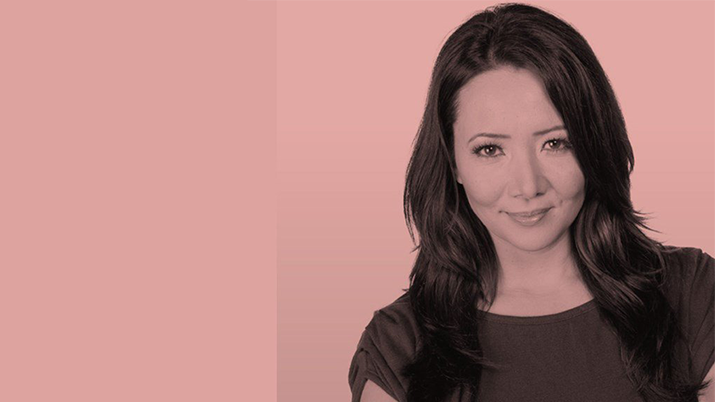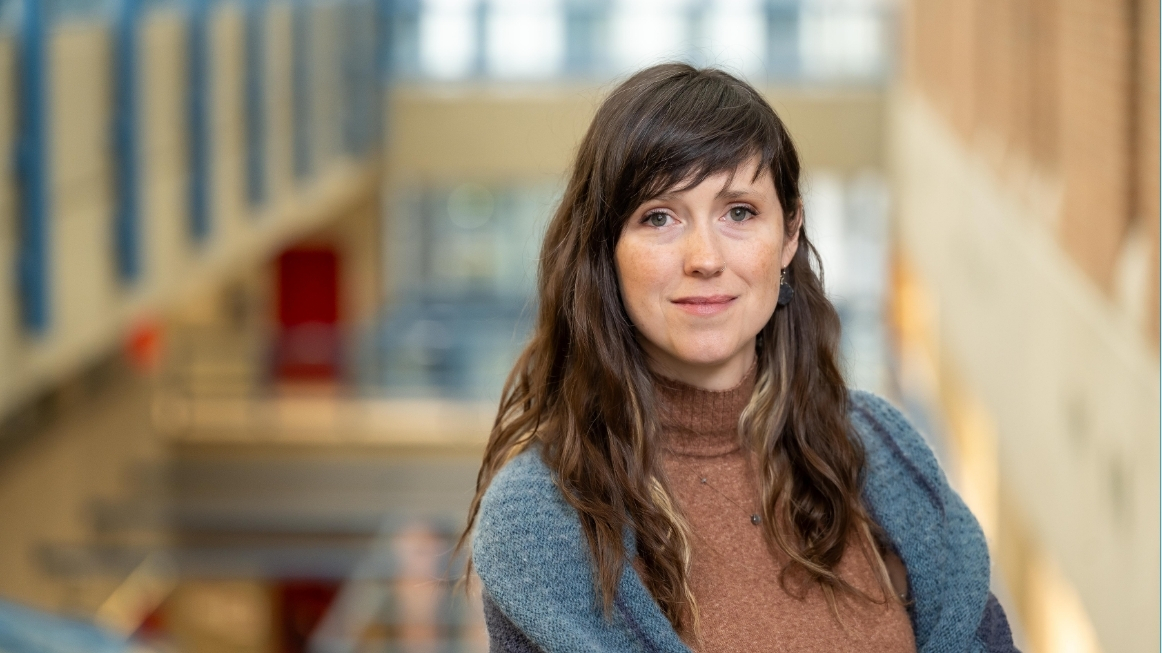

Ziya Tong
Meet Ziya Tong, psychology alumna and science journalist. After 15 years of hosting television shows like Discovery Channel’s Daily Planet and CBC’s ZeD, and releasing her new book, The Reality Bubble, she has come to believe that “what we really need now is people who can bridge the arts and science divide. We need more polymaths!”
The Faculty of Arts spoke to her by phone for an interview.
When you were doing your Psychology and Sociology degree, did you have an idea of what you wanted to do in the future?
I think that so much of my fascination was having an understanding of how the brain works and having an understanding of perception. So much of my book is about perspective, and perception, and how human beings see the world.
A lot of the sociology courses that I was taking at that time were giving me a deeper understanding of the way society was structured and how power functions in the world. Without that understanding you just become a cog in the machine.
Those two fields were integral to writing The Reality Bubble, and I think are what make the book a little bit different. It isn’t a political book or a science book, it’s actually a political-science book.
People think of arts and sciences as completely separate fields, but you’re saying you’re approaching science from this perspective that you learned from arts – is that correct?
One hundred percent. I feel that it’s so important, especially today, to be well versed in the arts and the sciences in order to have a good grasp and understanding of the world around us. To be siloed in either one is quite limiting. STEM without the humanities is exactly that… science without humanity.
I’ve spent 15 years now primarily learning from people in the sciences, and one of the big struggles is getting information and data across artfully and emotionally, especially when we look at things like the climate crisis, and the need for better storytelling. How important is storytelling when it comes to being able to impart all of this scientific data? It’s critical. It’s really important now that we become more like renaissance thinkers in the past, that we’re able to bridge the gap between the arts and the sciences.
Really, I liken the love of learning to the love of music. You know how sometimes you come across ‘music snobs’ who only like one type of music? The people I’ve met who truly love music love all genres, whether it’s jazz, punk, rock, soul or techno. They just love music. I feel it’s the same with people who love learning. You don’t just want to learn about one field, or stay siloed in the arts or the sciences. If you love learning the whole world is open to you. That’s why science Nobel laureates are 25x more likely to participate in the arts. What we really need now is people who can bridge the arts and sciences divide. We need more polymaths!
“It’s really important now that we become more like renaissance thinkers in the past, that we’re able to bridge the gap between the arts and the sciences.”
What challenges did you face in launching your career?
There’s no path to doing what I did. It’s not like mechanical engineering. You can’t just take a certain number of courses and graduate and pass and then you become an engineer. It just doesn’t happen like that in broadcasting.
One thing that I did do [while I was] at UBC was sell encyclopaedias. I had a job where I was knocking door to door, from Vancouver all the way up to Alaska. I was usually dropped off in a town of 500 – small towns all through northern BC – and typically 499 doors would shut in my face every single day. I knew that if I kept knocking, usually one door would open a day. It could be brutal, but at the same time, it taught me a tremendous amount about persistence.
That is something that I took with me after school. In the same way, when I was knocking on doors of television executives, I contacted over 2,000 TV executives over email before I got my first live audition. It’s a persistence game and you have to keep at it.
What advice would you give to students and alumni interested in breaking into journalism/media?
The students who are graduating right now don’t have the luxury of entering a status quo world or workforce, where basically you get a job and start accumulating stuff, and paying off your mortgage. That’s okay though, because the “rat race” aspect of the status quo is boring.
I would really encourage young people to become activists. To fold their work into the work of improving and changing the world that we live in. Passion is critical. Tenacity is critical. There’s a lot to fight for right now.
Have a point of view. A lot of times in journalism we have this idea that we have to be objective about everything. I’m not saying that people in journalism shouldn’t be objective. But we’re living in a time where we really need to get truth back out there, scientific truth. We’re battling a whole world of fake news right now.
In your chapter on the food industry, you talk about the 5-second rule – we all know that food dropped on the ground will have bacteria on it, but we lie to ourselves with the rule. This is an apt metaphor for your book: How do we combat our wilful blind spots and resist the temptation to eat the jelly bean, or in other words, stay in our comfort bubble?
Wilful blind spots are a really tricky one, because we all have them. Traditionally, a lot of these wilful blind spots have served us well in society. Keeping slaughterhouses away was a way to not only keep away the murder and the slaughter itself, but you were able to keep away things like disease. The same is the case with waste, as well.
Today, it’s becoming really critical that we are able to see clearly. That’s the key. We’re living in a climate crisis that is largely invisible. In the 21st Century we have cameras everywhere except where our food comes from, where our energy comes from, and where our waste goes. Those are our key blind spots. We can’t start to look at them until we get a sense of why we look away. Which is why I gave that 5-second rule analogy. Maybe if we have a bit of an understanding of why we’re looking away then maybe we won’t be quite so squeamish. Especially once we start to understand what the threats are, because when it comes right down to it, looking away is incredibly dangerous.
This article is republished from The Faculty of Arts. Read the original article here.
Read a feature with Tong on the UBC events website.


